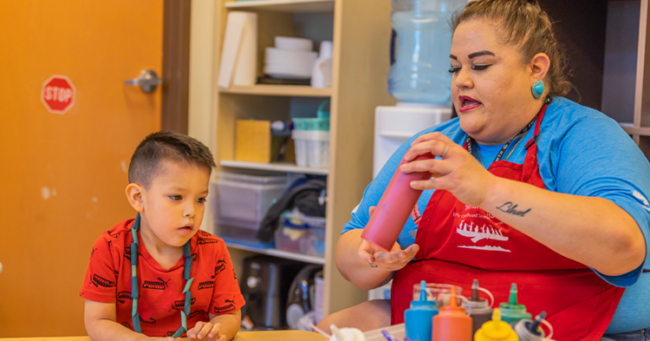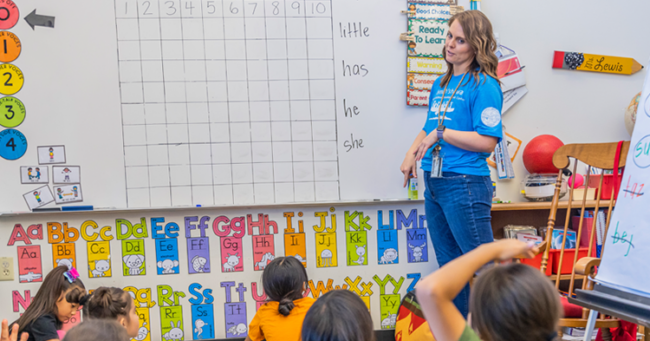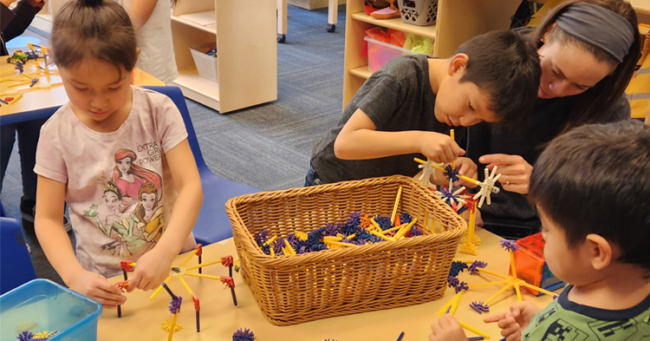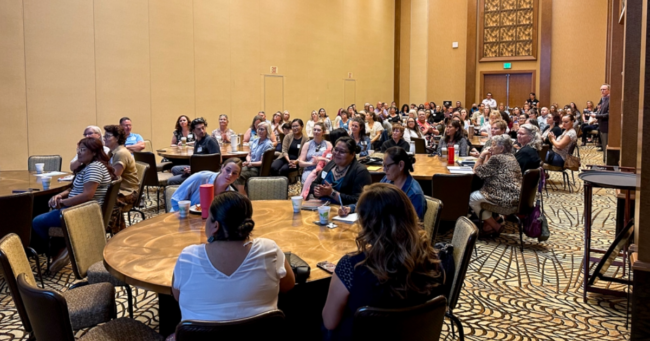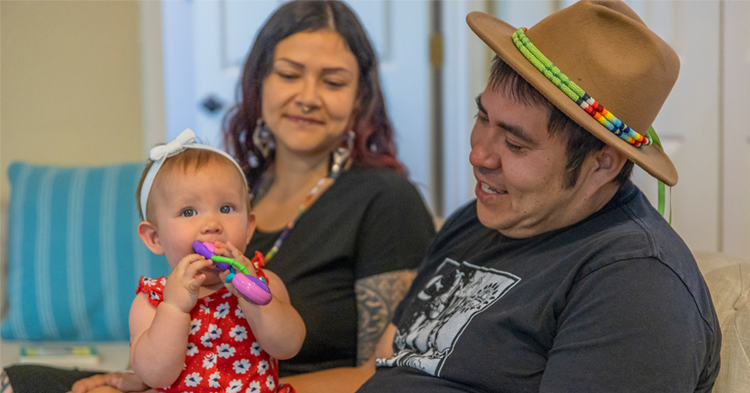
As regional director for the First Things First Coconino Region, Pearl Santillan finds herself traveling across sometimes hundreds of miles to visit communities in her region. Coconino is the second largest county in the United States and covers over 18,000 square miles.
The FTF Coconino Region includes most of Coconino County, minus the Navajo Nation and the Hualapai Reservation, plus Winslow, the Hopi Reservation and the Kaibab Paiute Reservation. The Havasupai Reservation is also part of the region.
While the majority of the region’s almost 10,000 young children live in or near Flagstaff, many live in towns or rural areas. And each community has unique needs for its young children.
Santillan and her colleagues, Kathy Farretta and Jacque Gencarelle, work every day to bring together early childhood partners, community members and local officials to create a common understanding of the struggles and challenges families face as they raise their young children, along with raising awareness of the importance of early childhood on the economic future of the area.
“We sit with each of the communities to understand and learn what’s going on and how we can support it,” Santillan said. “Many times, we have to start at the ground level and let them know, ‘I’m not coming in with all the answers. I’m here to listen and validate your concerns.’ It feels different for each community.”
The poverty cliff
Flagstaff is the county’s largest city and it has a high cost of living. A recent report found it to be the eighth most expensive small city for renters in the U.S. Many Flagstaff families find that the cost of child care, especially for babies, is exceptionally high.
Santillan calls it the poverty cliff.
“When families go to apply for DES (Department of Economic Security) family assistance, because the minimum wage of Flagstaff is higher, they don’t qualify for services,” she said. “Even if they’re making a higher minimum wage, they’re still living in poverty here because of the high cost of living.”
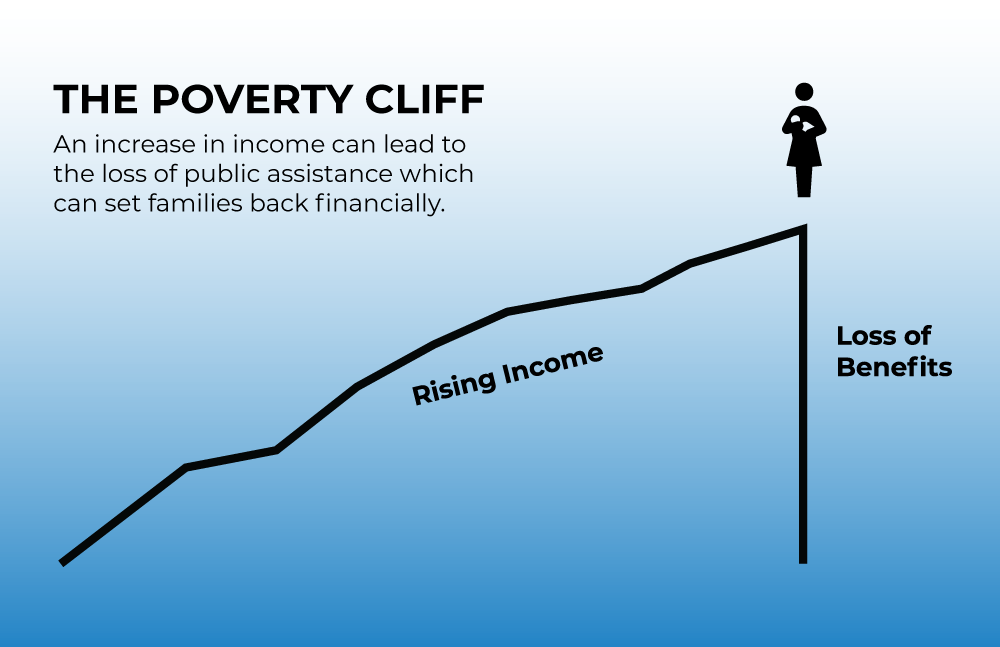
In 2016, the city passed an ordinance that Flagstaff’s minimum wage will always be at least $2 higher than the rest of Arizona to combat the higher cost of living. Arizona’s minimum wage is currently $14.35.
A single parent working full time at minimum wage in Flagstaff, which rose to $17.40 at the beginning of 2024, continues to struggle to afford the basics, including child care, Santillan said.
“That’s why Quality First scholarships are so important,” she said.
Eligible families making up to 300% of the federal poverty level can qualify for a limited number of available Quality First scholarships to send their child to a Quality First enrolled child care or preschool. Compare that to DES, which provides child care assistance to eligible families making up to 165% of the federal poverty level.
“Families might choose to work part-time, so that they do qualify for DES assistance,” Santillan said. “Those decisions don’t just impact the family, they impact Flagstaff’s economy because families aren’t able to fully contribute to the community’s economic development.”
Conversations about community needs
The FTF Coconino team recently traveled to one of the northernmost towns in Arizona, Fredonia, which sits on the stateline of Arizona and Utah to host a community forum.
“This so close to the Utah stateline, you get a feeling that they feel left out or forgotten when it comes to bringing in more resources to the area,” Santillan said.
Fredonia families shared their stories about how they live in Arizona, but work a few miles north in the tourist town of Kanab, Utah. There is no child care available for these families and during high tourist seasons, the population of the town swells, making child care even harder to come by.
Drive 80 miles east of Fredonia and you arrive at Page, where there is no infant care available for children birth to age 3. Another community listening session revealed challenges that businesses and the city are facing when they can’t find employees because those families need affordable and accessible child care.
“Businesses do not know how to recruit or retain employees who have young children and need reliable early care options,” Santillan said.
Page has a Head Start, along with a Quality First-enrolled preschool and a few additional child care centers, but infant care is missing. Businesses and city officials, along with other leaders are coming together to support and provide resources.
Santillan sees the community on the verge of taking bigger action to alleviate its child care challenges.
“Page is so ready to tackle this issue and it’s going to become a good example of a community success story we can use to inspire other areas in the region,” she said.
FTF has been hosting child care forums throughout the FTF Coconino Region, including Winslow and one is planned for Willams in July.
“I think everyone is grateful to have these conversations together in the same room,” Santillan said. “There’s something really tangible about the feeling when you show up and you listen.”
Child care crisis impact
Last year, the FTF Coconino Region hosted a Child Care Crisis Forum, which gathered community members from northern Arizona to discuss how the child care crisis is impacting their local communities.
At the time, Coconino County had a Child Care Community Health Impact Plan workgroup, which Santillan was a part of.
Every three years, the county does a community health assessment that covers the top priorities that residents identify as important to them, along with progress that the County has made to meet those community needs, such as affordable housing and food insecurity. Child care also rose to the top.
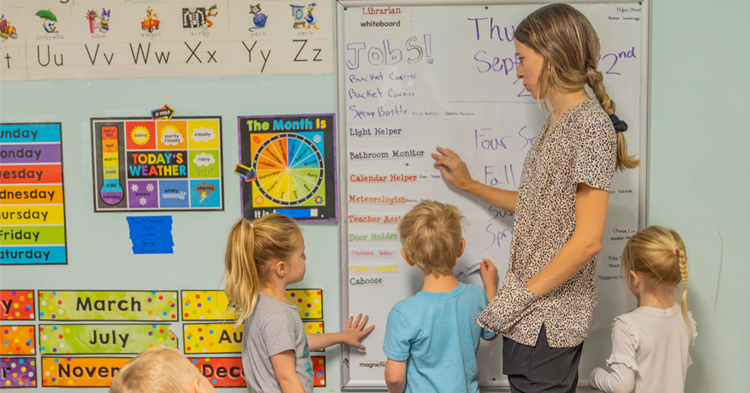
The chair of the Child Care CHIP workgroup recently told FTF that the forum helped the group reframe its action steps to focus on advocacy and strengthening existing community-wide partnerships.
“It was inspiring to participate in the creative brainstorming that the forum fostered, leaving us feeling buoyed by the power of the government, non-profit, and business sectors to work together creatively to address the child care crisis,” wrote Christine Newell, chair of the Child Care CHIP group. “First Things First’s focus on systems change and fostering larger community discussions to explore collective goals is essential to addressing the child care crisis.”
Although child care has now been incorporated into different parts of the county’s Community Health Impact work and the committee is no longer a stand-alone group, Santillan said she saw it as a success that the work that FTF is doing is helping support the priorities of the county.
“We provided information about working on a child care provider pipeline to recruit people into the early childhood education profession, along with increasing the awareness of the economic impact that child care has on businesses and their workers,” Santillan said.
She expressed hope in more work to come in the future. “There’s a lot of energy behind it and I am excited about where each community will take this work.”


